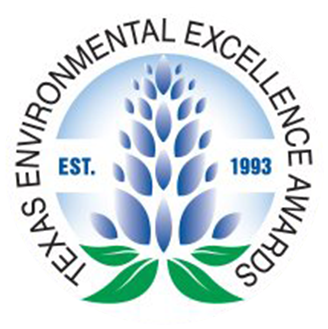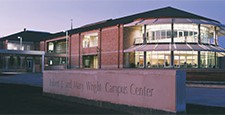Austin College’s Sneed Prairie Restoration Project is the 2020 Texas Environmental Excellence Award winner in the Education category, awarded by the Texas Commission on Environmental Quality. The award marks the latest in a history of environmental leadership at Austin College.
More than 11,000 Grayson County area schoolchildren and their teachers visit Austin College’s 100-acre Clinton and Edith Sneed Environment Research Area and Prairie Restoration, land donated to the College in 1984. The field trips are led by Austin College students. Each visiting child receives a field notebook and a sharpened pencil; they spend their trip trekking through the prairie as they engage in environmental experiments, conversations, and games that teach the significances of the endangered Texas blackland prairie ecosystem, regional history, and the potential of ecosystem restoration. Materials are provided to teachers for pre- and post-visit lessons. College faculty and staff have given numerous talks on the project to local organizations and landowners. A related video was part of the recent award application.
The field trip program has been funded by various generous donors over the years and is currently funded by the Oliver Dewey Mayor Foundation, a local charitable trust. As a result of their generosity, the field trips are completely free of charge and include reimbursement for bus expenses. The project also depends on numerous local partnerships. Staff at nearby Hagerman National Wildlife Refuge have loaned equipment and assisted with tallgrass seeding, and neighbor Alan Kainrad’s cattle visit to simulate bison herds. For more information on Sneed Prairie field trips or the restoration project, contact Austin College Environmental Studies Coordinator Rebecca Jones.
The Sneed family donated the 100-acre plot to Austin College in the 1980s, and the Sneed Prairie Restoration Project began in 1997. Nine experimental fields are monitored each fall by Austin College students to track the progress of native prairie restoration. Austin College students participate in biennial prescribed fires that limit tree growth on the prairie. Dr. Peter Schulze, professor of biology and environmental studies, has led the project since its inception.
The award is the latest in a series of environmental recognitions of Austin College. In 2013, the IDEA Center was awarded LEED Gold Certification. The college achieved ~99% wind generated electricity in 2016. In 2019, Environment America listed Austin College as second in the nation for renewable electricity use per student, and the College is regularly included in The Princeton Review’s Guide to Green Colleges.
Austin College, a private national liberal arts college located north of Dallas in Sherman, Texas, has earned a reputation for excellence in academic preparation, international study, pre-professional foundations, leadership development, committed faculty, and hands-on, adventurous learning opportunities. One of 40 schools profiled in Loren Pope’s influential book Colleges That Change Lives, Austin College boasts a welcoming community that embraces diversity and individuality, with more than 50 percent of students identifying as persons of color. The residential student body of approximately 1,300 students and more than 100 expert faculty members allow a 13:1 student-faculty ratio and personalized attention. Related by covenant to the Presbyterian Church (USA), Austin College cultivates an inclusive atmosphere that supports students’ faith journeys regardless of religious tradition. The College, founded in 1849, is the oldest institution of higher education in Texas operating under original name and charter.




